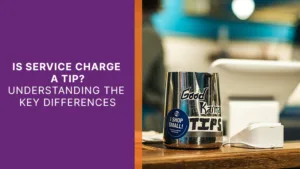Updated on: April 22, 2023
Tip pools. Some servers and restaurant staff love them while others are fiercely opposed to the notion. The concept of pooling tips is a hotly debated issue and there are pros and cons on both sides of the topic. What exactly is tip pooling? How does it work? What are the advantages and disadvantages? Is it even legal? In this post, we’ll break down some of the most common questions about tip pools so you can learn the ins and outs and decide what’s best for your restaurant.
How does tip pooling work?
Tip pooling works a lot like the way it sounds. Essentially, every server puts all or a portion of their tips into a pool and then the tips in the pool are redistributed evenly among all workers. In some cases, kitchen staff also get a cut.
What are the advantages of tip pooling?
Is tip pooling good? There are a couple major advantages of tip pooling. First, it gives newer servers the chance to earn a decent paycheck. A tip pool structure means a new server can earn a good wage even while they’re still learning and not yet ready to take larger tables with big orders and tips.
Another argument for tip pooling is that it puts every server on equal ground. If you’re a server who knows your tips will be distributed evenly, you’re more likely to help out. Why? Because you know that when one server succeeds, you all succeed. The old “a rising tide lifts all boats” saying is at play when tip pools are concerned. Tip pooling can squash competitiveness and encourage teamwork.
What are the disadvantages of tip pooling?
There are plenty of disadvantages to tip pooling. For one, it can make high-achieving and experienced servers feel they’re not being fairly compensated for their work. After all, if they’re more efficient and provide superior service, why should they have to share their tips? In their mind, they’ve paid their dues, climbed the ladder, and deserve to earn larger tips. They want to see the payoff for becoming great at their job and being able to serve larger parties.
Tip pooling may cause employees to lose motivation. If their tips are just going to be pooled with everyone else’s, what incentive do they have to provide better service? What’s in it for them? In an interesting way, the inherent competition sparked by giving each server all the tips they personally earn can cause the service level to rise. When everyone’s trying to be their best, knowing it will directly affect their tips and paycheck, results and morale across the restaurant tend to improve.
Additionally, there are a lot of laws around tip pooling, so it’s important you understand them so you don’t get nailed with a stiff legal penalty.
Are tip pools legal?
Not really. Kind of? There’s a lot of gray area. These are the answers you’ll hear to the question of whether tip pooling is legal or not. When it comes down to it, under the Fair Labor Standards Act, the U.S. Department of Labor barred tip pooling when employers do not claim a “tip credit.” The basic idea is that tips by default belong to employees. All employers must honor this unless:
- The state law allows employers to take a tip credit. Some states allow tips to count toward the minimum wage requirement, meaning that restaurants can in essence claim that the tips were part of their pay to the employee.
- The employee is part of a valid tip pool. There are some cases where these can be valid, but it’s less legally tricky when it’s voluntary and not mandated by the employer.
So are tip pools legal? Yes, but only in some circumstances. Should you have a tip pool? Only if you are very familiar with the laws in your specific state and you are certain it would be a benefit to your employees. In general, most employees tend to be against tip pooling.
How common is tip pooling?
Tip pooling is not particularly common, especially when it comes to pooling and splitting tips with the kitchen employees. In fact, a study found that only 45% of tip pooling restaurants split their tips with the kitchen staff. There are a lot of different laws and regulations around tip pooling, so many restaurants opt to avoid it to stay out of any legal drama.
What is the difference between tip pooling and tip sharing?
Generally, the difference between tip pooling and tip sharing is that tip sharing is voluntary, whereas tip pooling is not. For instance, if a server wishes to share part of their tip with a back-of-house worker, they could opt to do it of their own volition. In the case of tip pooling, they wouldn’t have a choice. Rather, a portion of their tip would automatically go to other workers.
What does it mean to tip out?
Tipping out means a server gives a portion of their tip out to other workers. For instance, if a server were to tip out, they’d give portions of their tip to others who supported them in their work like the cook, busser, host, or dishwasher. Tip pools are kind of a form of mandatory tipping out.
Is tip pooling right for your restaurant?
Tip pooling is a very sensitive and complex issue. In general, you should take into account first the local state laws and second your employees. Understand the pros and cons, know the laws back and front, and be sure to think about the entire situation before you decide if tip pooling is right. If you are in doubt, it’s probably best to avoid tip pooling.
What tools or software exist for managing pay and tip pools?
When it comes to keeping track of finances in your restaurant, it’s best to have cash management software to make sure every tip and transaction is accounted for. Managing tips can be very difficult, particularly when cash is involved. It’s best to have a system you understand. One that can handle the complexities of your modern restaurant. We’re here to help. If you’re ready for a demo, just give us some info and we’ll be in touch.






